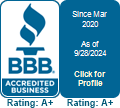
How to File Taxes Like a Pro: Tips to Maximize Your Refund and Save More
Tax season is often dreaded, but it does not have to be. Did you know that over 70% of taxpayers receive refunds, with the average amounting to more than $3,000? Filing your taxes isn’t just about compliance; it’s an opportunity to uncover savings, reduce liabilities, and even set the stage for a brighter financial future. Understanding the tax filing process and leveraging tax-saving opportunities can turn a potentially stressful season into an economic win.
Whether you want to secure a larger refund, minimize errors, or file with confidence, these expert tips will guide you through the process like a pro. Let’s dive into how you can maximize your savings and make this tax season work in your favor.
1. Get Organized Early
- Gather Necessary Documents: Collect essential paperwork like W-2s, 1099s, receipts for deductible expenses, and last year’s tax return. Time and stress are reduced when everything is in one location.
- Track Important Deadlines: Missing the April 15 filing deadline can result in penalties. Set reminders and mark your calendar to stay on track.
- Use Tax Preparation Tools: Tax software can simplify calculations and ensure you do not overlook valuable deductions or credits.
2. Understand Tax Deductions and Credits
- Deductions That Save You Money: Lower your taxable income with typical deductions like mortgage interest, student loan interest, medical expenses, and charitable donations.
- Take Advantage of Tax Credits: Unlike deductions, credits directly reduce the taxes you owe. Programs like the Earned Income Tax Credit (EITC), the Child Tax Credit, and various education-related tax credits can provide significant financial benefits for eligible taxpayers.
- Special Deductions for Remote Work: You might qualify for a home office deduction if you work from home. Ensure you meet IRS requirements to claim this benefit.
3. Contribute to Tax-Advantaged Accounts
- Retirement Contributions: Depositing funds into IRAs or 401(k)s not only boosts your savings but also lowers your taxable income.
- Health Savings Accounts (HSAs): Contributions to HSAs are tax-deductible, grow tax-free, and can be eligible for qualified medical expenses.
4. Choose the Correct Filing Status
The filing status you choose determines your tax bracket and influences which deductions and credits you can claim. Options include:
- Single: For individuals who are unmarried and don’t qualify for other statuses.
- Married Filing Jointly: Usually the most beneficial for married couples.
- Married Filing Separately: Useful if one spouse has significant deductions or liabilities.
- Head of Household: Offers a higher standard deduction for single taxpayers supporting dependents.
- Qualifying Widow(er): Available for those who recently lost a spouse and meet specific criteria.
5. Avoid Common Filing Mistakes
- Double-Check Information: Ensure details like Social Security numbers and bank account information are accurate.
- Use Electronic Filing: E-filing minimizes errors and ensures faster processing of refunds.
- Do not forget to Sign: Sign and date your submission to avoid rejection by the IRS.
6. Seek Professional Help if Needed
It is wise to consult a tax professional if your tax situation involves multiple income sources, investments, or complex deductions. They can identify savings opportunities you might overlook and ensure compliance with tax laws.
7. File Early to Avoid Last-Minute Stress
Procrastination leads to errors and unnecessary stress. Filing at the start will give you ample time to gather documents, review your return, and make corrections. Plus, it will protect you against tax-related identity theft, reducing the window of opportunity for fraudsters.
8. Put Your Tax Refund to Good Use
When your refund arrives, consider these options:
- Pay Off Debt: Reduce high-interest debt, such as credit card balances.
- Build an Emergency Fund: Set aside money for unexpected expenses to avoid relying on credit in the future.
- Invest in Your Future: Contribute to a retirement account or invest in personal development.
Final Thoughts
Take charge of your taxes this year and make every dollar work harder for you. By staying organized, filing early, and leveraging these strategies, you can turn tax season into an opportunity for financial growth and stability.


